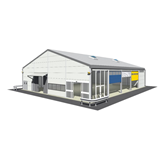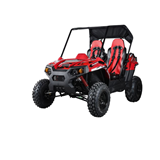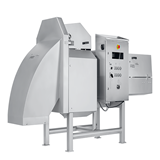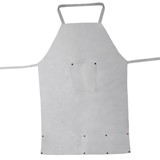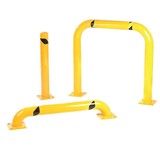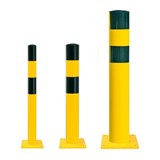During the 12-month campaign, inspectors concentrated primarily on dairy and beef cattle farms and paid particular attention to dangerous machinery, animal handling practices and unsafe manual handling.
In the 12 months to 30 June, WorkSafe inspectors issued 375 improvement notices requiring issues be fixed. Another 64 breaches were able to be dealt with on the spot by employers.
Of the 375 notices, almost 30 per cent related to machinery. Of that 30 per cent, almost half involved poor guarding.
Denise Cosgrove, WorkSafe chief executive said the safety issues surrounding machinery remained a major concern.
"Machinery and attachments that are used incorrectly, poorly maintained and inadequately guarded is still the biggest problem on farms," she said.
"Farmers are practical and creative but machinery should only be used for the purpose it's intended."
Other safety issues identified during the campaign included poor ladder access to silos, slips, trips and fall hazards, a lack of personal protective equipment, and failure to have a chemical register and Material Safety Data Sheets that provide safe storage and handling advice.
Cosgrove said dairy and beef farms had been given priority because around 50 per cent of agriculture's 1000 serious injury claims over the past two years occurred on livestock farms.
Of the nine fatalities on Victorian farms over the same period, seven involved machinery and two involved handling of animals.
"The cost and impact an injury or fatality has on the individual, the family business and the community, particularly in country areas, is immense," Cosgrove said.
"We know that 1000 serious injury claims are only the tip of the iceberg as many farmers operate hobby farms or are self-employed and do not fall within the workers' compensation system.
"But regardless of the type of farm involved, systems need to be reviewed, machinery should be rechecked and safety equipment — such as rollover protection, seat belts and guarding — used or installed. Most importantly of all, don't rush or take shortcuts.
"The issues our inspectors found all have very basic solutions often at little to no cost. Sometimes just taking the time to think through a hazard could make a huge difference."
Cosgrove said inspectors would continue to focus on livestock farming, dangerous machinery, animal handling practices and unsafe manual handling over the next 12 months.
"Our priority is to ensure workplaces are as safe as possible and that workers get to go home to loved ones at the end of the day," she said.
Safety tips for farms:
- Make sure livestock handling equipment and infrastructure is suitable for the breed characteristics and cattle size
- Where possible, always keep people and animals separate
- Install gates with spring loaded latches in yards
- Install cat walks on loading race and ensure ramps have sides covered
- Ensure race design does not allow cattle to turn around
- Ensure yard design allows for safe exit in case of emergency
- Adopt safe animal handling practices
- Maintain gates, pens and yards
- Select the most suitable vehicle for the task
- Ensure vehicles are used in accordance with the manufacturer's instructions and for the purpose for which they were designed, that tractors have roll over protection and quad bike operators wear a helmet


